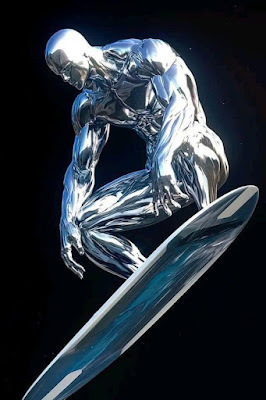Thoughts on my 56th Birthday (Cascading towards Catastrophe)
 Taking the long view during times of crisis is a luxury, but seeing as it’s my birthday (or was when I started this essay) I’m allowing myself the indulgence.
Taking the long view during times of crisis is a luxury, but seeing as it’s my birthday (or was when I started this essay) I’m allowing myself the indulgence. Follow along as you please - I recognize that attention is currency these days.
I’ve been reading Sapiens: A Brief History of Humankind by Yuval Noah Harari. The book has offered me a perspective I haven’t had before on time, which is natural given the circumstances.
I’ll leave it to you to fill in the circumstances with whatever catastrophe - impending or in progress - however you like.
I’m midway through the book, and the author is talking about the conquest of North and South America by Europeans. It’s a subject I’ve read a great deal about, but until reading this chapter I hadn’t really put the time frame into perspective.
Without getting too far into the weeds, in 1492, Columbus Sailed the Ocean Blue...
Which, admittedly, leaves a lot to be desired insofar as what befell the people living in the continents unfortunate enough to be on the other end of Columbus' voyage in the centuries to follow.
But let's shrink the time frame down a bit.
There’s no childish doggerel (at least not as I’ve heard) neatly describing the destruction of the Aztec Empire, but according to Google AI that occurred on August 13, 1521, when the Spanish conquistador Hernán Cortés captured the Aztec capital Tenochtitlán.
There are plenty of books out there about the decades between these two events, and well more about the centuries that followed. (Feel free to ask for recommendations, or to recommend some yourself.)
But on the occasion of my 56th birthday, I find myself meditating on this particular span of time, personalizing it by moving it 500 years forward into a recognizable time frame.
So 1492 = 1992 - And so forth.
In 1992 I was living in Rochester, NY, and had more-or-less just begun my post-university life of travel and various jobs. I moved to Taiwan in 1994, lived there until 1998 until I became fluent enough in Mandarin to pass myself off professionally as Mandarin Fluent, which led to my first professional job in which speaking Chinese was a main component.
I travelled around China for a couple more years at that job, was back in the USA for Y2K, then returned to Asia for an extended period as a footloose and fancy free freelance travel journalist until 2006, when I published my first book (Vignettes of Taiwan).
This led to my first gig with Lonely Planet, and I travelled around on various projects for LP until 2013. In 2013 I relocated to Portland and became an Oregonian, and had another career shift, from travel writing to being a tour guide.
By August 13, 2021, I’d already published a few more books, had partnered up for good after many near-misses, had shifted careers yet again, and settled down in the town where I’ll probably spend the rest of my life after decades of travel.
So much for the condensed version of my own life over 29 years (with an additional four years added on to bring us past the 500 year anniversary of the destruction an of indigenous empire that had ruled Mesoamerica for 200 years before being laid low by a combination of germs, steel and avarice).
My point in this essay (besides the book recommendation) is to humanize time.
History feels academic, and the years between 1492 and 1525 are difficult to grasp in the human scale of things. But I can contextualize the decades between 1992 and 2025, personally and politically.
Without getting too deep into the woods, as a 23 year old in 1992 things seemed to be generally looking up from my own limited perspective. The USSR had just collapsed, the world seemed to be liberalizing in general, and the term climate change had no more relevance to me than whatever the Aztec phrase for malodorous armored men from another world would have had to a 23-year old living in Tenochtitlán.
I don’t know much about the general mindset of Aztec people, but I’m going to assume that opinions must have varied about as much as they do among my own culture / circle of friends.
By 43 my historical counterpart from Tenochtitlán might have travelled around his world, visiting other cities in the kingdom, maybe hearing tales about malodorous armored men from another world who’d begun appearing in lands far to the east.
The analogy gets hazy from here on in, mostly because of how exponentially faster information (along with everything else) moves in the 21st century than it did in the 16th.
But regardless, no matter what opinion (or lack thereof) my historical counterpart from Tenochtitlán had of Spaniards on his 43rd birthday, by his 56th - if he’d managed to survive - his world had been altered beyond recognition.
By that point, his opinion had become as irrelevant to history as my own.
But the earth keeps spinning, and at this point that may be the best we can hope for.
Thanks for reading. Leave a comment if you like.



